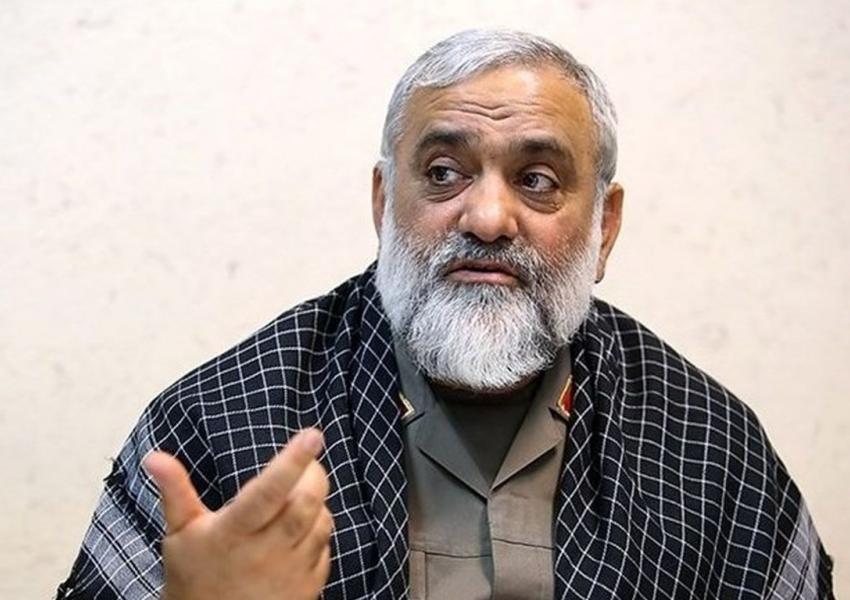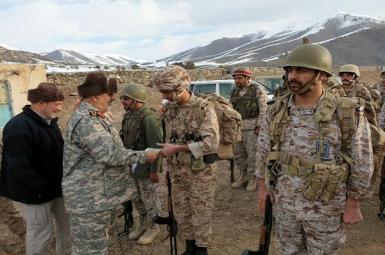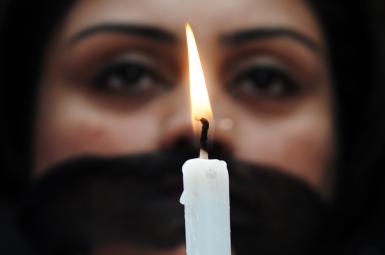
IRGC Official Urges End To Foreign Presence In Iran Cyberspace
Brigadier-General Mohammad-Reza Naghdi, a senior official in the Revolutionary Guards (IRGC), wrote Friday to members of parliament urging them to end the "shameful situation" of "the hegemony of foreigners on Iranian cyberspace."
Naghdi, the IRGC ‘Coordination Deputy’ and former commander of the Basij militia, criticized a delay in parliament addressing Supreme Leader Ali Khamenei's call 14 months ago for managing cyberspace to top parliament's priorities. The general suggested lawmakers were “still stuttering” when speaking about "Iran's independence in the cyberspace".
Parliament this week delegated decisions on a controversial bill setting new highly restrictive internet regulations to the parliament’s cultural committee. The legislation would require foreign-owned social networking and messaging corporations to appoint an Iranian representative, agree to comply with Iranian laws and regulations, and to officially register subscribers and provide this information to the authorities if requested.
Foreign social media companies would not agree to these conditions, especially that Iran is not a big commercial market, compared with China, for example. Several Iranian oundits and experts warned on Friday and Saturday that firther restrictions on the internet would result in emigration of educated youth, causing lasting damage to the country's economy, techmology and health care.
In his letter Naghdi wrote that a "handful of Zionists" were behind the decision by Instagram, which is owned by the New York-listed Facebook, to remove the page of Iran's newly appointed chief justice, Gholam-Hossein Mohseni-Ejei, a day after it was set up.
Instagram has offered no explanation for its move. Iran’s state-owned Press TV claimed that the company blocked posts in 2020 praising Qasem Soleimani, the Iranian general killed by a US drone strike in Baghdad, while carrying material threatening violence against Khamenei.
In 2019 Instagram blocked several accounts held by Iranian officials, justifying it in terms of United States sanctions. This strengthened calls in Iran for either blocking the application or for new legislation that would stop foreign corporations deciding which Iranians should have access to social media.
In the meantime, Twitter and Facebook have permanently banned former US president Donald Trump, while Khamenei still has accounts in several languages on these giant platforms.
In 2014 Mohseni-Ejei, then first deputy chief justice, wrote to Mahmoud Vaezi, minister of communications, urging the filtering of all foreign social networks and messaging applications. In a statement Thursday, the judiciary's press office condemned Instagram chopping Mohseni-Ejei’s page, but said it hoped to re-instate the page and was working on setting up accounts for the new chief justice on other social networks "to establish direct communication with people."
Khamenei ordered in 2012 the establishment of a government agency, the Supreme Council of Cyberspace, to regulate internet content on religious, political and cultural grounds. Reporters without Borders (RSF) in 2020 included the council among the 20 worst digital predators, meaning “companies and government agencies that use digital technology to spy on and harass journalists and thereby jeopardize our ability to get news and information.”
In 2005, Human Rights Watch said Mohseni-Ejei, who was appointed chief justice by Khamenei July 1 to replace President-elect Ebrahim Raisi (Raeesi), “should be investigated for his possible involvement” in the 1998 killing of dissident Pirouz Davani during a spate of killings of intellectuals and writers by intelligence ministry agents.









